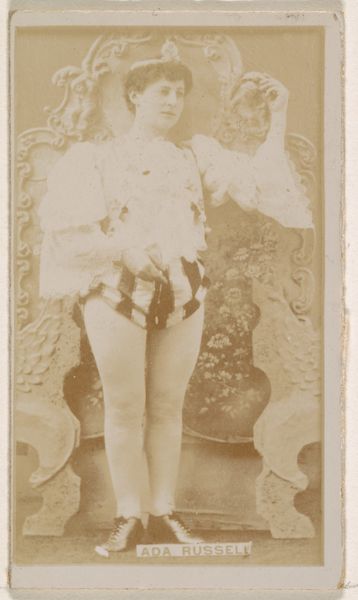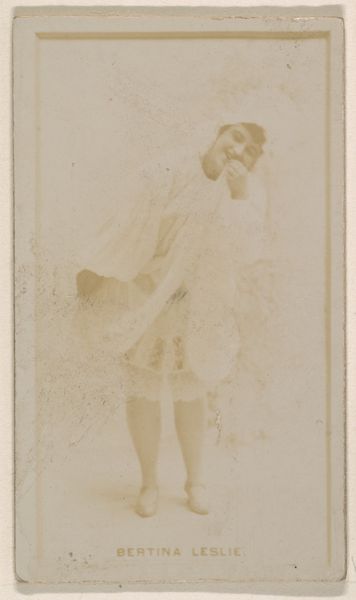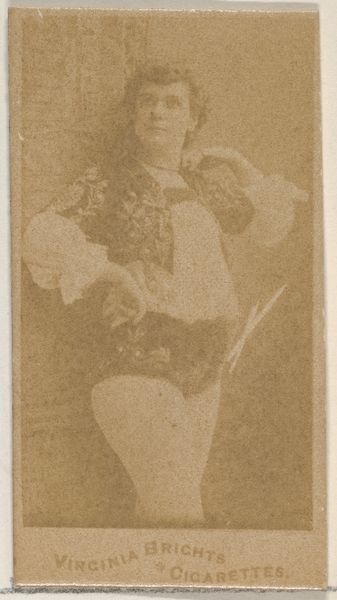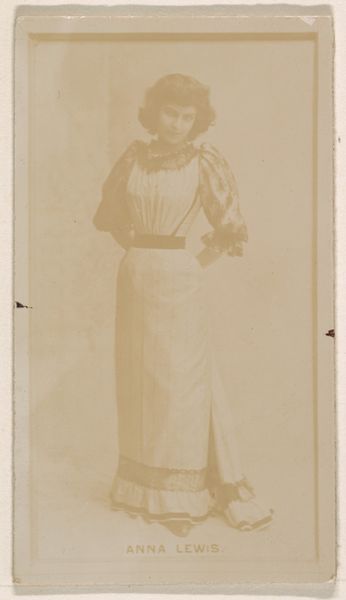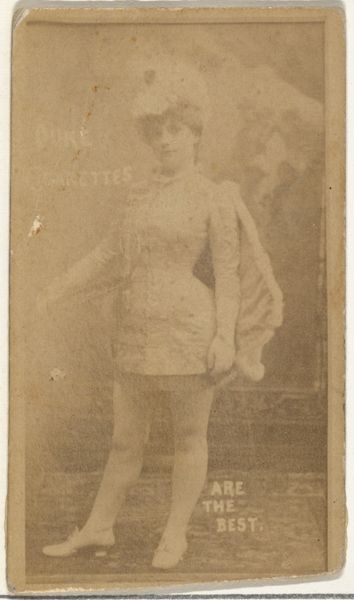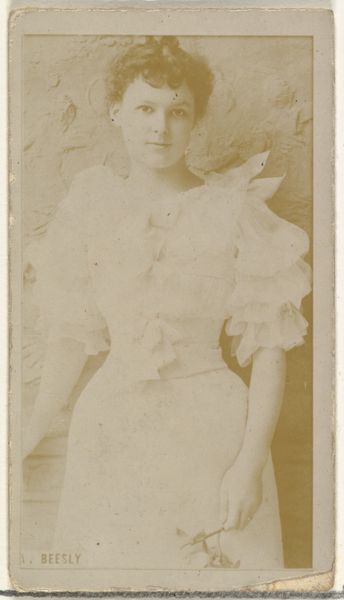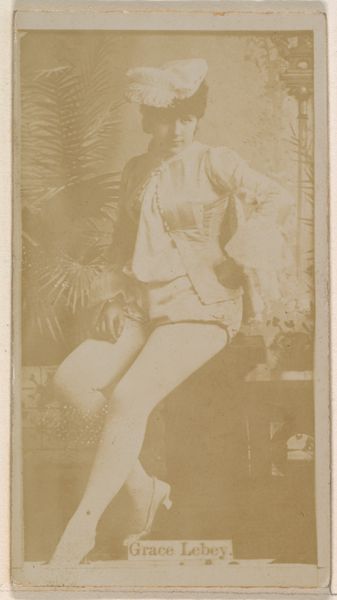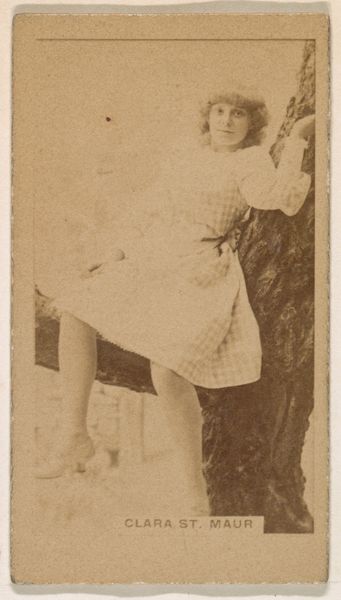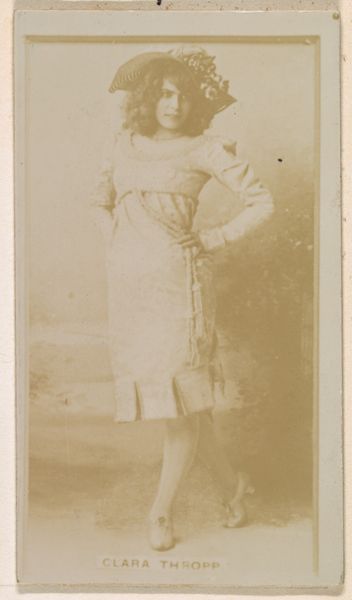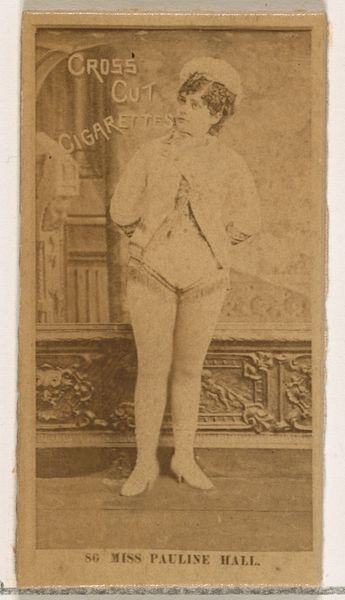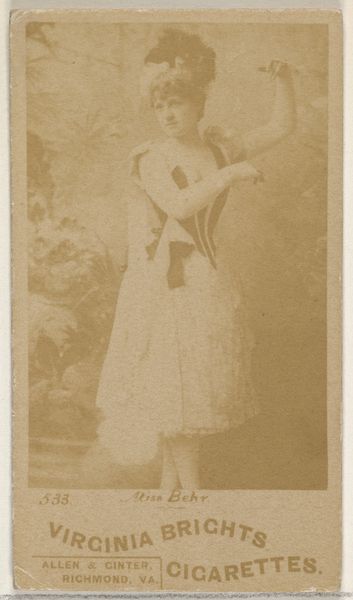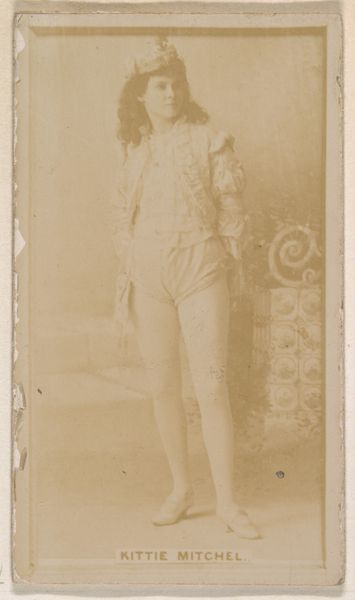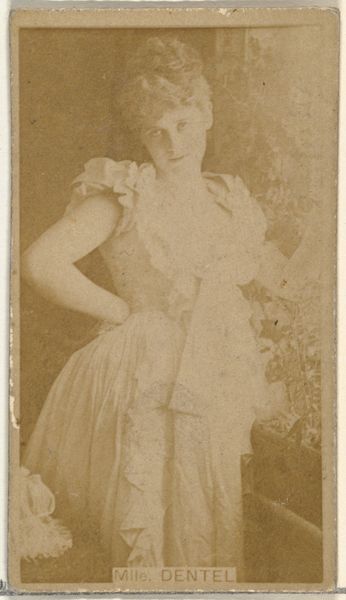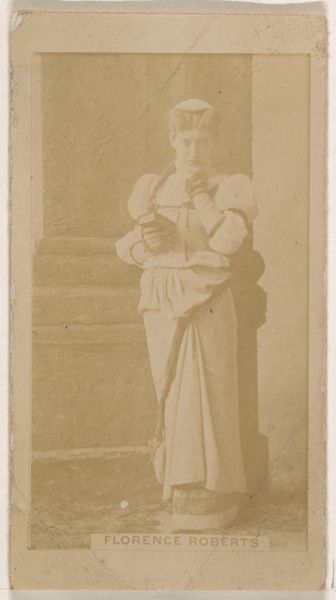
Nellie Page, from the Actresses series (N245) issued by Kinney Brothers to promote Sweet Caporal Cigarettes 1890
0:00
0:00
print, daguerreotype, photography
#
portrait
# print
#
daguerreotype
#
photography
#
historical photography
#
erotic-art
Dimensions: Sheet: 2 1/2 × 1 7/16 in. (6.4 × 3.7 cm)
Copyright: Public Domain
Editor: Here we have an interesting photographic print from 1890. It's "Nellie Page," from the Actresses series, published by Kinney Brothers to promote Sweet Caporal Cigarettes. The figure appears translucent, draped in what looks like lace. It strikes me as…well, surprisingly sensual for something advertising tobacco. What can you tell me about its broader context? Curator: It’s fascinating, isn't it? These "actress" cards were hugely popular, playing a part in the burgeoning celebrity culture of the late 19th century. It’s important to remember these weren’t high art, they were commercial objects, deliberately designed to circulate ideas about femininity and desirability. Editor: So, was the “erotic art” tag pushing the boundary at the time, or simply reflecting established social norms? Curator: A bit of both, really. The boundary was being simultaneously tested and reinforced. Consider that actresses held a somewhat liminal social position. Admired, even idealized, yet often morally suspect. Kinney Brothers exploited that tension, presenting these women as simultaneously accessible and untouchable through mass-produced images that blurred public and private spheres. The question then becomes, how did this proliferation of images shape broader perceptions and expectations of women within society at the time? Editor: So, the point wasn’t just about selling cigarettes, but about constructing an image of the ideal woman? Curator: Precisely! By linking their product to these figures, Kinney Brothers wasn’t just selling tobacco; they were selling a lifestyle, a set of values. What does that tell us about the perceived values of the smoking public at that time? What was the effect of creating and mass marketing "ideal" figures like Nellie Page on cultural views of women more broadly? Editor: That’s definitely given me a lot to think about – it's much more than just a portrait on a cigarette card. Curator: Exactly. It's about power, representation, and how consumer culture actively participates in shaping our understanding of identity.
Comments
No comments
Be the first to comment and join the conversation on the ultimate creative platform.
